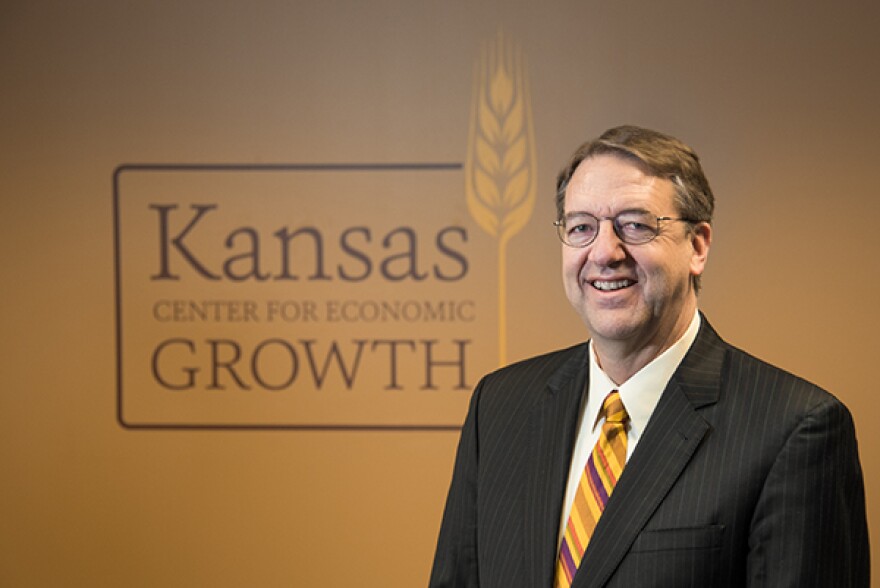There’s probably not an educator in Kansas who isn’t waking up this morning with a bit of queasiness.
Monday is the day of the consensus revenue estimate, an awful bureaucratic phrase that has far reaching, real-world effects.
Economists from state government and academia will lock themselves in a room in Topeka and they will look into the future.
"While I was state budget director for 12 years I was part of these meetings each time," says Duane Goossen who was budget director for three Kansas governors and is now with the progressive-leaning Kansas Center for Economic Growth.

Experts from the Division of the Budget, the Revenue Department, Legislative Research plus consultants from the University of Kansas, Kansas State University and Wichita State University all come with their own predictions.
"Basically it’s a meeting where everyone is sharing their predictions — their forecasts — and then a lot of discussion until consensus is reached," says Goossen.
The group will come up with three numbers: how much tax revenue the state will have for the rest of this fiscal year, which ends June 30, and how much revenue to expect next fiscal year and the year after that.
These meetings are all important, but this one is crucial because the legislature has yet to pass a balanced budget for the new year that begins July 1.
Goossen says lawmakers know they want to spend $6.5 billion next year — but, there’s a problem.
"The state does not have enough ongoing revenue to support expenses at that level," he says.
In fact, the budget lawmakers are working with now is $150 million short.
And if the estimators decide income tax revenue next year isn’t going rebound or severance taxes for oil and gas drop because of low energy prices, the budget picture just gets uglier.
"If the revenue estimate is revised downward then that gap gets bigger and lawmakers have a bigger cesium that they have to jump over or fill up in order to make the budget work," Goosen says.

All this has educators across Kansas worried about what will happen at Monday's meeting.
"Well, I think there certainly is nervousness," says Mark Tallman who handles legislative issues for the Kansas Association of School Boards.
There’s still a chance that schools will have to cut spending before the end of this school year, he says.
If income tax revenue tanks in April and May, as it did a year ago, that’s a problem that has to be solved right away.
"But if the state general fund comes into a deficit the legislature can’t send districts money it doesn’t have," Tallman says.
And those block grants that will fund schools for the next two years that we’ve talked so much about, they’re based on this year’s budgets.
So, if districts take cuts in the current budget and the consensus revenue estimate for next year is bad, Goossen says schools in Kansas are going to have a rough couple of years.
"And without new revenue, school programs and other type of state programs are going to have to be cut back further," he says.
But some suggest there’s a little too much gloom and doom being predicted.
"School districts should be start being honest, in my view, about school funding," says Dave Trabert, head of the conservative Kansas Policy Institute and someone who has been very critical of how school districts spend money.
Trabert says school funding has actually increased year-to-year and districts are complaining about that hike being reduced.
"When government says its budget is being cut it almost always means that the rate of increase isn’t as much as they want. And that’s exactly what the case is with school funding here in Kansas."
No matter what happens when the economists emerge from their meeting — we know this: there’s still a long, difficult process to balance the budget when lawmakers return at the end of the month.




